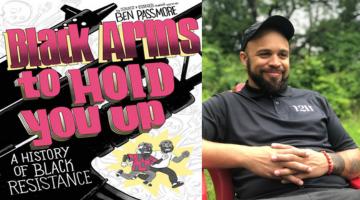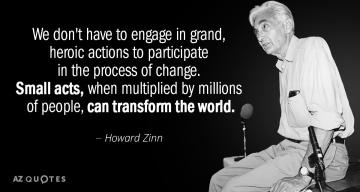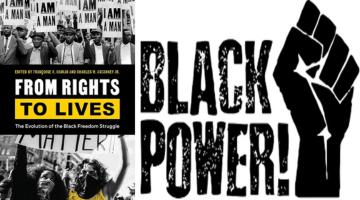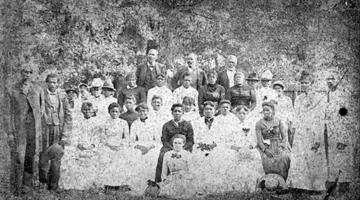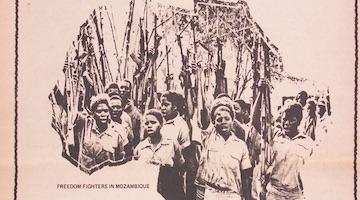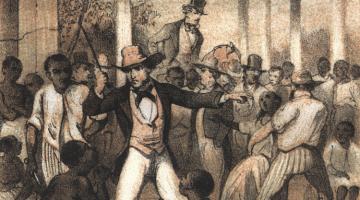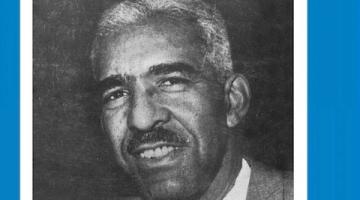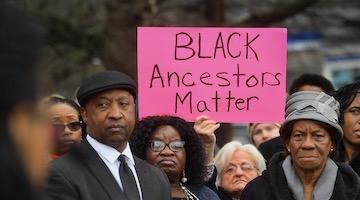An interview with Dr. Karen Wilson- Ama’Echefu.
“As a singer and storyteller, bearing the culture that had raised me as a way of teaching history.”
Karen Wilson-Ama’Echefu is a Singer, Storyteller, Teaching Artist, and Public Performing Intellectual specializing in the song, story, music, dance, visual art, and history of African Culture in the United States. She is a culture bearer from Harlem, New York of Virginian parentage, who holds a PhD in US History (University of California, Riverside, 2007.)
Karen’s work focuses on African Diasporic Folklore. She has conducted workshops on Arts In Education across the United States.
Dr. Wilson-Ama’Echefu, recently penned a song that has become a widely sung anthem in the Washington, DC area called “This is a Crime Scene.” Although this song was specifically written to provide music for the struggle around the Moses African Cemetery struggle it has gained popularity for its ability to speak to other struggles facing African people. A link to the song can be found at the conclusion of this interview.
BAR: Please provide our readers with an overview of your background? Where did you come from and how did you decide to live in Washington, DC?
Karen Wilson-Ama’Echefu: I am a Harlem child and my parents came up from Norfolk, Virginia in the early 1930’s in the Great Migration to New York City. I grew up in the midst of a community of Black folks that was centuries old. I worked for some 20 years as a teaching artist in New York City public and independent schools, as a singer and storyteller, bearing the culture that had raised me as a way of teaching history that began as African American history and blossomed into the intellectual and cultural histories of Africa in diaspora in the United States.
I was based in New York City until I was 48 and then when my daughter, Alissa, graduated Fieldston School and went off to Amherst College, in a calculated endeavor to escape “empty nest syndrome” I moved to California and entered a graduate program in History. I chose UCR because Sterling Stuckey was there, but was also able to work with some wonderful other scholars: Africanist Ray Kea, and African Americanist Ralph L. Crowder. Rebecca Kugel, became a profound mentor and friend. She got me through the PhD, as she had so many others. Working with her provided me an excellent introduction to race as it concerns indigenous peoples.
After finishing the PhD in US History with a focus on African Diasporic Folklore in 2007, I found no academic jobs in a major recession, and the Gluck Fellows Program for the Arts, at that time the most comprehensive Arts internship /fellowship program funded by the Gluck family, took me on as Assistant Director. I had been a Gluck Fellow for five years as a storyteller and teaching artist and Susan Rose, the founding director, gave me a job when I needed one. This gave me the opportunity to train teaching artists from seven departments at the University of California, Riverside, as well as to support teachers and administrators in developing the Arts in Education in Southern California’s Riverside County.
After two and a half years as an staff developer and administrator with The Gluck Fellows Program, I was granted a Regional Research Fellowship by Fulbright that took me to Nigeria for some 6 months, and to Ghana for 3months as I researched children’s traditional games and songs to uncover what elements of African song and story might have flowed into diaspora some 500 years ago. (Societies tend to teach their children their most treasured ideas through play and I went to find out what many of the source societies from which African Americans had come had been teaching their children.) I met my husband, Ajimmiri Oswagwu Ama’Echefu there. So when they offered me the opportunity to teach at the University of Calabar, I readily accepted. I was based in Nigeria for 4 years longer.
My daughter was diagnosis in 2014 and I came back whenever I could to be with her. When she was hospitalized for emergency surgery in 2016, her friends made it possible for me to come and be with her. She passed on in December 2016, and I never really left after that. I should also say that while I was in Nigeria, I was watching developments in the United States feeling that there was a need for storytellers here.
When there is the promotion and embrace of “alternative facts,” we need what Zora Neale Hurston tells us are “lies above suspicion”. There was a need for the deep and undeniable wisdom that only storytellers carry. It was time for me to come home.
BAR: Was it a conscious decision for you to integrate culture and activism? Why is preserving African culture important to the struggle?
Karen Wilson-Ama’Echefu: My father loved history. Though he had to go back to finish high school with my mother’s encouragement, by the time I was born almost two decades later, he had amassed a library on African, African American, and diasporic (though they would not have called it that) histories that would have made any scholar proud. My mother sold World Book Encyclopedia, beginning a 20-year career to get me a set for free when I was about six. Both loved music, dance, theater, and poetry. It was natural for me to combine these, though it took a while, and two degrees, to figure it out. (My Daddy wanted me to get a PhD, so did I. Done.) I also come from a family of teachers. I believe that teaching is a subversive activity. Teaching people to read and understand, to respect themselves and each other, to listen, to love, and to think is absolutely revolutionary. . Teaching Pre-K, if you do it well, is activism. It was natural for all of these elements to come together for me.
African stories were born to support the creation of rich, diverse, productive, deeply human societies. They were not perfect societies because they were human, but they worked very well for a very long time. African American culture continued African cultural practices, while making choices that allowed us to transform when useful, innovate when necessary and continue when possible. This brilliant approach to the making of culture maintained our sanity and produced what, to a great extent, the rest of the world considers American culture.
African American creativity was born in struggle. We have never ceased to need this culture because our struggle has never ceased. We see peoples around the world holding on to their own cultures to protect mind and body in conflict – and sometimes they pick something of our own, this is what humans do to survive, we borrow from each other. But to hold on to what you have shaped in the crucible of history – no matter what the history is – is what we as humans must also do. To turn away from such intellectual and cultural substance and creativity would be unforgiveable: and it is most often our poor and working classes that provide us with the fountain of living waters – the spiritual well – to which we must repair.
To hear a version of “This is a Crime Scene” by Karen Wilson-Ama’Echefu please see link below:
https://www.youtube.com/watch?v=xp7mEMHRWU4&feature=youtu.be
Please sign this petition: http://chng.it/rphgSx74th
Contact County Executive Marc Elrich and tell him:
Stop the genocide on Moses African Cemetery, return that land to its rightful owner--Macedonia Baptist Church!"
Call Marc at Phone: 240-777-2550
Email: marc.elrich@montgomerycountymd.gov
Tweet: @marc_elrich
Please see video by Kevin Berends on Moses Genocide and Marc Elrich
https://otos.app.goo.gl/hcy6G3e1ogyYs1UL9
Dr. Marsha Adebayo is the author of the Pulitzer Prize nominated: No FEAR: A Whistleblowers Triumph over Corruption and Retaliation at the EPA . She worked at the EPA for 18 years and blew the whistle on a US multinational corporation that endangered South African vanadium mine workers. Marsha's successful lawsuit led to the introduction and passage of the first civil rights and whistleblower law of the 21st century: the Notification of Federal Employees Anti-discrimination and Retaliation Act of 2002 (No FEAR Act). Marsha was inducted into the Maryland Women’s Hall of Fame, March 2017. Currently, she is working to stop Montgomery County and HOC from its continue desecration of an African burial ground in Bethesda, Maryland.
COMMENTS?
Please join the conversation on Black Agenda Report's Facebook page at http://facebook.com/blackagendareport
Or, you can comment by emailing us at comments@blackagendareport.com

